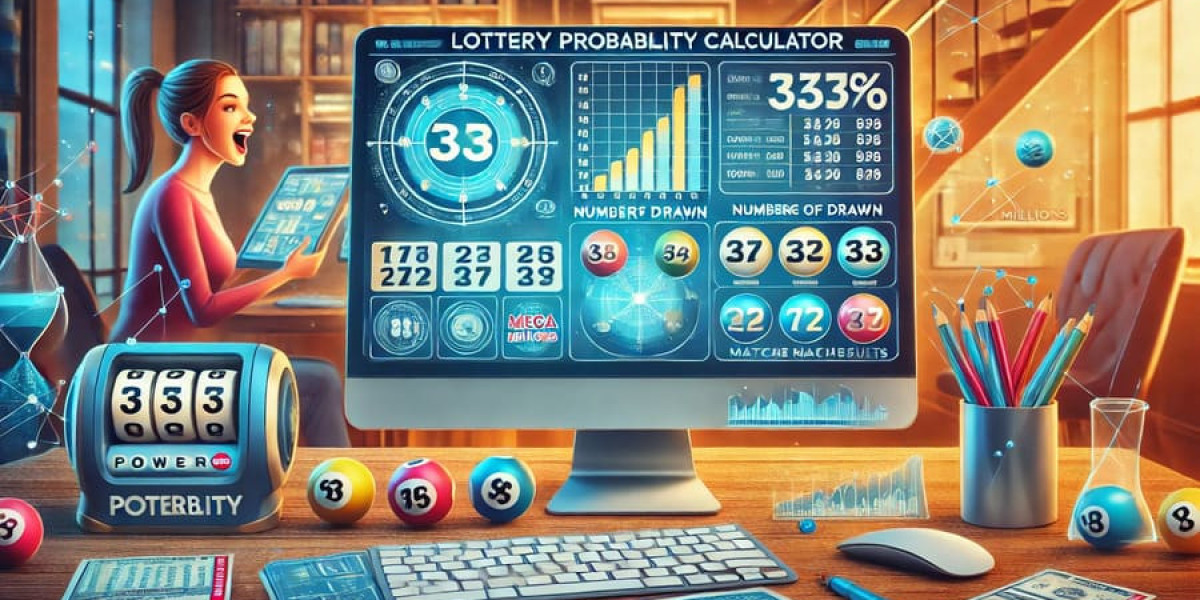Lottery scams check with fraudulent schemes that pose as legitimate lottery winnings, typically focusing on people by way of emails, cellphone calls, or social media.
Lottery scams check with fraudulent schemes that pose as legitimate lottery winnings, typically focusing on people by way of emails, cellphone calls, or social media. The scams can take various forms, but the frequent thread is the promise of cash in exchange for private data or upfront fees. The perpetrators leverage the joys associated with profitable a lottery to entice victims into their traps. An essential statistic to assume about is that, in accordance with the Federal Trade Commission, over $33 million was reported misplaced to lottery scams lately. This figure underscores the urgency of educating people in regards to the tactics utilized by scammers.
Another statistical approach is combinatorial analysis, which examines the different combinations of numbers that can be created. Understanding the entire combos attainable informs gamers of their precise odds of profitable. This strategy components in what quantity of tickets are sold and how many successful tickets were bought, revealing whether playing a sure combination yields favorable results.
A pivotal strategy amongst seasoned
Lotto Auto Number gamers involves using statistical evaluation to decide on numbers. While
Lotto Analysis draws are random, historical data can reveal quantity tendencies. For occasion, some players might choose "scorching" numbers—those that have been incessantly drawn in recent games. In distinction, others might have a glance at "chilly" numbers, which are people who haven't been chosen in a while. This technique, often recognized as number frequency evaluation, suggests that by learning past successful numbers, patterns can emerge that might be beneficial in formulating a winning approach. The rationale is easy: if certain numbers appear to be winning extra often than others, they may have an elevated likelihood of being drawn again. Each area has its own statistical stories out there, which can be a priceless resource for players crafting their number choice.
Additionally, psychological components influence how individuals view lotteries. Cognitive biases such because the gambler's fallacy might cause gamers to imagine that earlier outcomes can influence future outcomes. When combined with personal experiences—such as never successful a considerable prize—it turns into easier for individuals to conclude that the lottery is rigged. Challenging these concepts requires schooling, specializing in the chances and the nature of randomness, which might help dispel the myths surrounding lotteries.
Furthermore, emerging technologies, such as blockchain, might create extra transparency in lottery operations, affecting how information is analyzed. Players could have improved entry to historic knowledge and analytical tools, allowing for a more profound understanding of trends and statistics.
Advance fee scams are significantly infamous throughout the realm of
lotto frauds. In these scams, victims are advised they want to pay a charge to unlock their prize cash, usually justified as "administrative fees" or "switch fees." Scammers are probably to prey on susceptible individuals by assuring them that their winnings are monumental, making the upfront fee look like a minor detail in the grand scheme of wealth. Unfortunately, as quickly as the fee is distributed, the scammer disappears, leaving the sufferer without their cash and without any winnings. Individuals should never pay money upfront to collect on a prize, as respectable lotteries don't require payment to launch funds.
With ongoing technological evolution, the capabilities surrounding
Lotto Number Generator machine algorithms are advancing. Innovations in artificial intelligence and machine learning create exciting prospects for optimizing lottery number era and enhancing safety protocols to forestall fraud. For instance, implementing advanced algorithms can bolster RNG systems, minimizing vulnerabilities that would compromise fairness.
Public notion plays an important role within the conversation surrounding lottery integrity. Many people harbor beliefs that lotteries are inherently unfair or rigged as a end result of disproportionate number of players to prizes. These perceptions are sometimes fueled by anecdotal proof and media portrayals of lottery outcomes, which may skew public opinion.
Additionally, numerous online communities provide platforms the place players share insights and methods primarily based on their analyses. These collaborative efforts often yield unique views and strategies that won't have emerged in any other case, fostering an setting of shared data.
The attract of profitable the lottery often leads many individuals to participate in various video games of chance, hoping to strike it wealthy. Unfortunately, alongside the respectable lottery schemes, a dark underbelly of scams exists. These scams are crafted to take benefit of the hope and goals of the unsuspecting, resulting in monetary loss and emotional misery. In this comprehensive article, we are going to explore several types of lottery scams to keep away from, to assist defend you and your hard-earned cash. By understanding these fraudulent practices, you can confidently navigate the world of lotteries without falling victim to scams. Whether you are a frequent player or a casual participant, figuring out the pink flags of scams will improve your online safety and financial security.
 Stakeカジノでの特別ボーナス
Durch tribetranca1983yode
Stakeカジノでの特別ボーナス
Durch tribetranca1983yode 1Win First-Time Player Promo: Your Gateway to Big Wins in 2025
Durch Mikayla Gleichner
1Win First-Time Player Promo: Your Gateway to Big Wins in 2025
Durch Mikayla Gleichner BetWinner Promo Code for Guaranteed Cash Rewards: Unlock Your Winning Potential
Durch Mikayla Gleichner
BetWinner Promo Code for Guaranteed Cash Rewards: Unlock Your Winning Potential
Durch Mikayla Gleichner Проститутки индивидуалки Самара.
Durch dudviolette528
Проститутки индивидуалки Самара.
Durch dudviolette528 Чат рулетка онлайн.
Durch manuel6653118
Чат рулетка онлайн.
Durch manuel6653118


